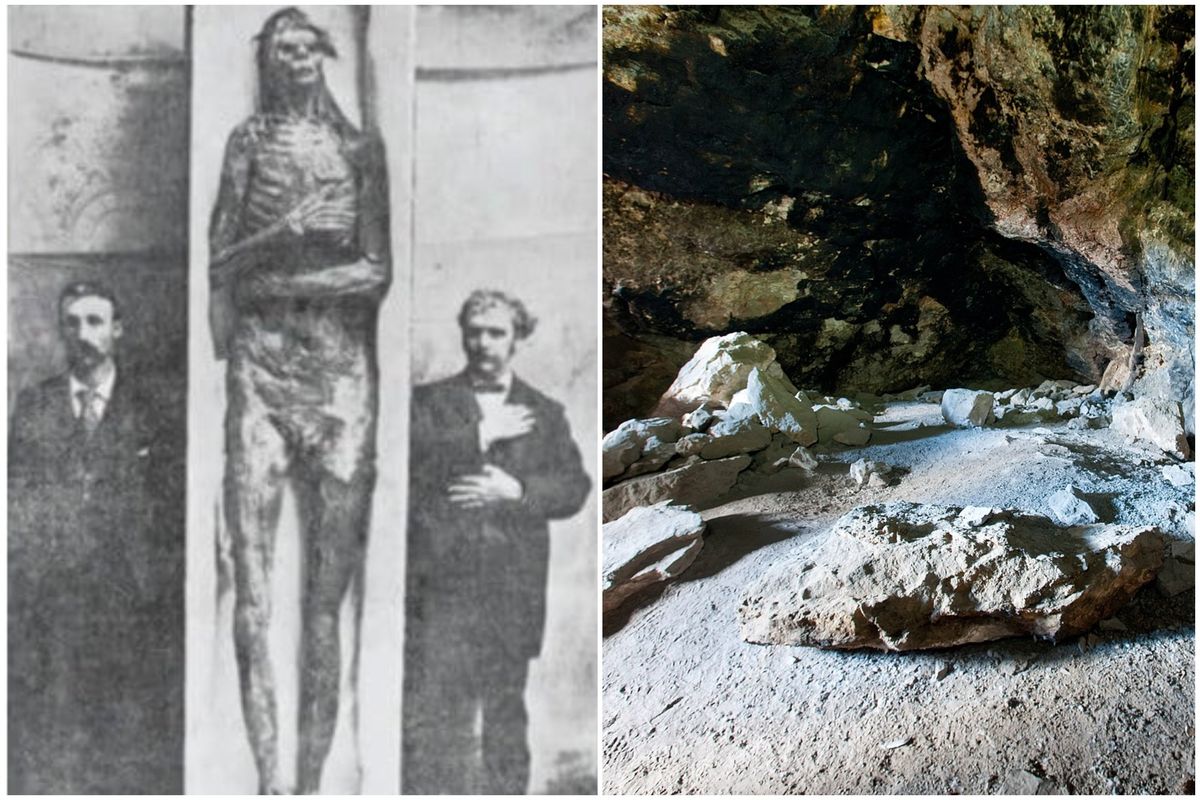News
Harriet Marsden
May 13, 2017

Picture:
ITV/REX/Shutterstock
Let's talk about the F-word.
It's one of the most versatile, effective words in the English language, and yet we can't really put it on indy100.
You can use it as an expletive, a transitive / intransitive verb, a noun, adjective, adverb, interjection, emphasis, negation.... The list goes on. But you probably shouldn't use it on live TV or radio.
And yet, the etymology of this most damning yet fascinating word is murky and hard to trace. One reason that it's so difficult to establish its origins is that it's much more commonly used in spoken language, rather than written, and so went unrecorded for posterity.
Let's look at some of the myths of its origins...
1. For Unlawful Carnal Knowledge
If you hark back to the early 90s, hard rock band Van Halen released an album under this title.
Apparently former lightweight boxing champion Ray 'Boom Boom' Mancini told lead singer Sammy Hagar that the F word originated from this acronym, which denoted a punishment for adultery in Ireland.
2. Fornicating Under Consent of King
A popular etymological myth has it that during the Middle Ages, the virulent Black Death epidemic caused serious concern over population.
One school of thought says that towns were therefore trying to control the population due to meagre resources, and so people needed royal permission to have children.
When they got it, they would place a sign outside their house saying: 'Fornicating Under Consent of King'.
3. Fornicate Under Command of King
The other interpretation is that the epidemic so demolished the population, that people were actually encouraged by the rulers to go forth and multiply.
Thus, the order was: 'Fornicate Under Command of King'.
4. 'Pluck Yew'
In a myth that was made popular by radio show 'Car Talk', the expression: "f*** you" actually came from the phrase 'pluck yew', when longbows were generally made with wood from a yew tree.
Legend has it that French archers at the Battle of Agincourt were insulting the English and their skills with a bow and arrow by waving their fingers in a 'V' sign.
When the English were victorious, they returned the gesture, implying that they could still 'pluck yew', or shoot arrows.
First Appearance
Open Culture reports that the first written use of the word was in 1528.
However, it actually previously appeared in William Dunbar's 1503 poem 'A Brash of Wowing', in lines 13-14: “Yit be his feiris he wald haue fukkit: / Ye brek my hairt, my bony ane”.
First Adjectival Use
The case that Open Culture is referring to is a 1528 manuscript copy of Cicero's De Officiis, where in the margin a monk expresses displeasure at an abbot.
F***in Abbot
First Defined as a Verb
In John Florio's 1598 Italian-English dictionary, A Worlde of Wordes, the term 'to f***e' is given as a translation for 'fottere'.
First Appeared in the OED
Along with the C word, the first appearance of the F word in the Oxford English Dictionary was in 1972, a significantly long time after it was presumably part of modern parlance.
Given the prolific written records of the modern age, it'll probably get much easier to identify etymological roots of swearwords in the future...
More: Using more swear words is actually a sign of a larger vocabulary
Top 100
The Conversation (0)













